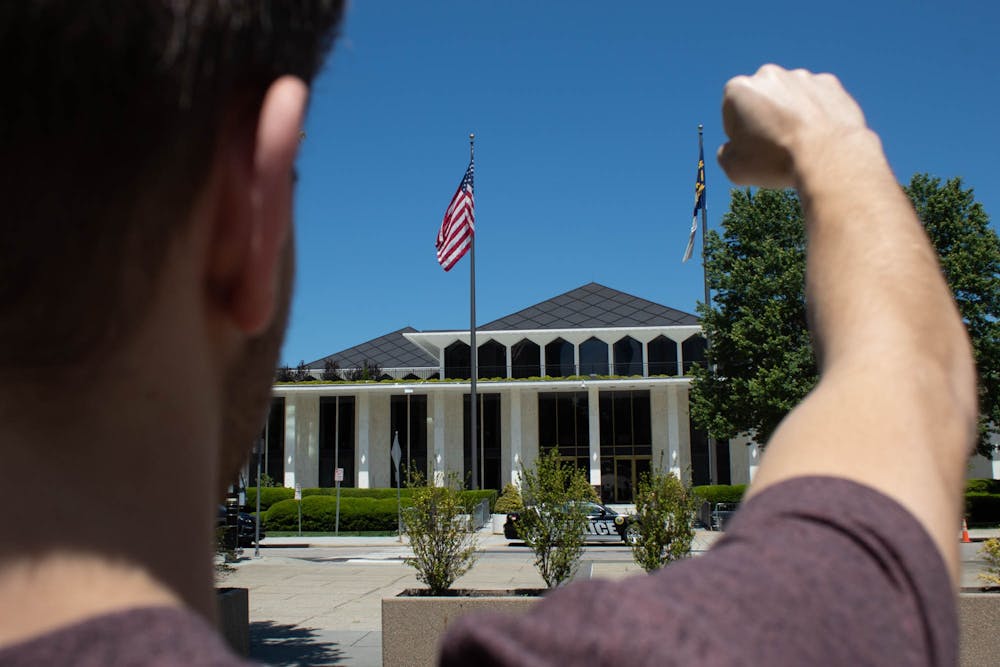Earlier this month the American Civil Liberties Union of North Carolina filed a lawsuit challenging multiple provisions of House Bill 40, which is set to impose stricter penalties for rioting.
In its complaint, the ACLU named two members who would be affected by the bill due to their continued involvement in Black Lives Matter protests, including Jaelyn Miller, a community lawyering fellow at Emancipate NC.
The suit argues the law will dissuade people from engaging in lawful protest activities, according to a press release. H.B. 40 amended and expanded the N.C. Anti-Riot Act, which, according to the complaint filed by ACLU, violates the First and Fourteenth Amendments to the United States Constitution and three sections of Article I of the North Carolina Constitution.
H.B. 40 — which was sponsored by N.C. House Speaker Tim Moore (R-Cleveland, Rutherford) — defines a riot as a public disturbance of three or more people which through disorderly or violent conduct results in injury or damage. It also said that anyone who urges someone to riot can be charged.
Samuel Davis, an attorney with the ACLU of NC Legal Foundation said H.B. 40 violates the First Amendment for two reasons.
The first, he said, is that the law is overbroad to the point that it includes lawful protest activities. The second is that speech that urges other people to engage in a riot is protected by the First Amendment, due to a precedent set by the Fourth Circuit finding a nearly identical provision in the federal Anti-Riot Act unconstitutional.
“We think this is pretty clearly an effort to combat or to target dissenting views and to undermine peaceful protest movement and so we brought suit to vindicate the constitutional rights of all North Carolinians and to protect the rights of individuals who engage in peaceful protests,” Davis said.
The bill became law without Gov. Roy Cooper’s signature on March 17 and amendments to the Anti-Riot Act are scheduled to take effect in December. In 2021, Cooper vetoed similar legislation due to First Amendment concerns.
“I acknowledge that changes were made to modify this legislation's effect after my veto of a similar bill last year,” Cooper said in a statement. “Property damage and violence are already illegal and my continuing concerns about the erosion of the First Amendment and the disparate impacts on communities of color will prevent me from signing this legislation.”




